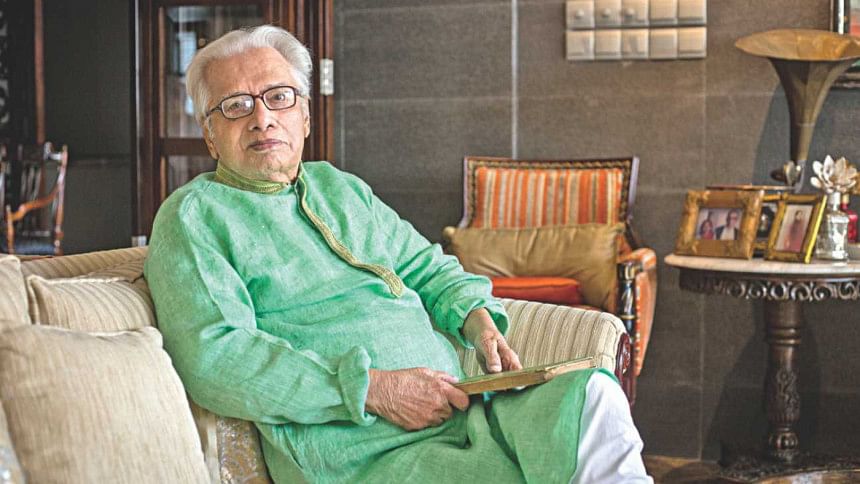Renowned poet-folklorist Dr Ashraf Siddiqui passes away

Internationally-acclaimed folklorist and poet Dr Ashraf Siddiqui today passed away at a hospital in Dhaka at the age of 93.
He breathed his last at Apollo Hospital where he was undergoing treatment, according to a press release.
Dr Siddiqui's body will be kept at his Dhanmondi residence on Road No. 7A from 12pm to 1:15pm.
His namaz-e-janaza will be held in Dhanmondi Shahi Eidgah Mosque after Zohr prayers.
Dr Siddiqui was a secular humanist who enriched 20th century Bangla literature.
In the 1940s he emerged as a promising young poet. In a career spanning more than seven decades, he composed around 500 poems, wrote a number of short stories, novels, children's literature and engaged in academic research on the folklore of Bangladesh. He wrote 75 books and numerous journal articles, according to the press release.
Set against the backdrop of the Bengal famine, his poem "Taleb Master" (1948) very quickly established him as a poet of the masses. "Golir Dharer Chheleti" augmented his literary reputation as a short story writer. The national film award-winning "Dumurer Phool", directed by eminent filmmaker Subhash Dutta was based on this story.
Dr Siddiqui is greatly admired for his contribution preserving the oral Bengali folk culture by cataloguing the tales and riddles in the written form. His books "Lok Shahitttya", "Bengali Folklore", "Our Folklore Our Heritage", "Folkloric Bangladesh" and "Kingbodontir Bangla" are primary textbooks of folklore researchers of South Asia.
He successfully introduced the folk tales of Bengal to the global audience through his writings such as "Bhombol Dass: The Uncle of Lion", and "Toontoony" and other stories. "Bhombol Dass" was published by Macmillan in 1959 and was not only a best seller in the US but was also subsequently translated to 11 languages. "Robidranather Santiniketan", "Paris Shundori" were written in the early 1970s and are still popular among general readers today.
Dr Siddiqui won a number of prestigious awards including Ekushey Padak for literature in 1988, Bangla Academy Puroshkar for children's literature in 1964, and the highest award of the then state on literature in 1966, the UNESCO award and Daud Award for his book on folklore.
Siddiqui was born in Nagbari village of Tangail on 1 March 1927. He was educated in Santiniketan, Dhaka University and second Masters and PhD in folklore from Indiana University, US. He taught in various government colleges including Rajshahi College, Chittagong College, A M College of Mymensingh, Dhaka College and Jagannath College and also at the University of Dhaka. Dr Siddiqui went on to serve as the Director of Kendrio Bangla Unnoyon Board, Chief Editor of District Gazetteer and Director General of Bangla Academy, a position that he served for seven years.
He held a number of honorary positions. Those include Chairman of Bangladesh Sangbad Sangstha, Chairman of Bangladesh Press Institute and President of Nazrul Academy and Nazrul Institute. His lasting legacies are the Bangla Academy's Ekushey Boi Mela and national Boishakhi Mela which was subsequently transferred to Shilpakala Academy. He played a key role in establishing Kabi Nazrul University in Trishal and articulated the demand for transforming Jagannath College into a university.

 For all latest news, follow The Daily Star's Google News channel.
For all latest news, follow The Daily Star's Google News channel. 



Comments